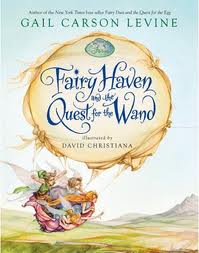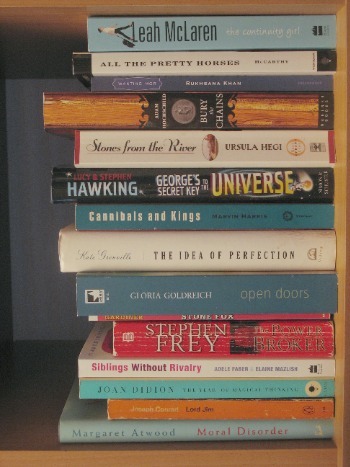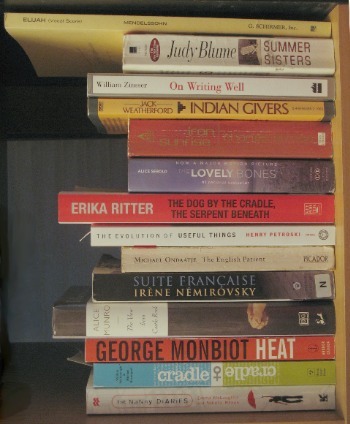New York Adventure, Day 1
Our train was scheduled to leave at 8:30, so we arrived at Union Station at 7:30, possibly a little too early but I'd always rather have time to kill than hurry, especially with kids. We picked up our tickets, then treated the kids to Cinnabon cinnamon sticks, which were to be the first of many delicious, unwholesome treats over the week ahead.
On board the train we settled in, luxuriating in the space and comfort. We played with the trays and the buttons on the seats, working out all the different lounging possibilities.
The train started moving on time, and not twenty minutes later Cordelia wanted to know if we were nearly there. I explained that we would be there after lunch and dinner, so she only asked two or three times more.
We each spent our train-bound day differently: Delphine braided gimp and read a lot; I read a little, stared out of the window a lot, escorted missions to the bathroom and the snack car, and worked a bit; Cordelia looked out the window, did activity books and drew; Blake read. I created a Train Bingo for Delphine (a five-by-five grid of things to see out the window: a red roof, a horse, a water tower, a playground, etc) and then she did one for me. As on an airplane, meals were an effective diversion: we had sandwiches and carrot sticks for lunch from the Canadian snack bar, and for dinner, a meatball sub, a hot dog and a small pepperoni pizza from the American snack bar. (The snack bar changes nationality — menu, currency and staff — at the border, at the same time as the dour border guards come through checking passports and making sure no-one is smuggling in contraband fruit.)
I was alert and fully conscious in the morning, and it's a good thing I decided to get some work done then because after lunch I became listless and sluggish. It's a paradox that sitting around conserving energy is more enervating than being active, and by around 2:00 in the afternoon all I was good for was staring out the window looking for the dog, bicycle and yellow-leafed tree that Delphine's bingo had set me in search of.
New York State is not at its most beautiful in early spring; for hours, it seemed, the view was of grey swamps and grey trees, with only an occasional raven or hawk betraying life. In between the swamps there were brief views of farms and farmhouses on the higher ground.
Eventually the swamps gave way to a wide river (the Hudson, it turns out), flowing fast with great slabs of ice thrown up on either side of it. The opposite bank of the river was a towering chunk of rock scattered with leafless trees. The view was monochromatic and beautiful in its severity, like an Andrew Wyeth painting.
After dinner the children really started to get fidgety and fretful. Their normal routine has them going to bed almost immediately after dinner, but they weren't able to get to sleep at their usual time. On top of that, the day of junk food combined with very little activity left them both with upset stomachs. Cordelia finally fell asleep about forty minutes before the trip ended, but Delphine wasn't able to sleep at all and was tired and emotional when we rolled into Penn Station.
The decision to take a cab to the hotel was an easy one, even for Delphine who hates cars. Cordelia's crying about her tummyache all the way to Queens didn't impress the cabbie much, although he did not betray any emotion. Then I unknowingly undertipped him — tipping makes me panic a little bit at the best of times, and late at night after a day on a train is not the best of times. Sorry, Abdullah, wherever you are.
We arrived at the hotel around 10:15 pm and after settling in and brushing teeth we all went to bed feeling much better, glad to have finally arrived and excited about the next day.



